Abraham Maslow Biography: The Father of Humanistic Psychology & Self Actualization Theory
Abraham Maslow was one of the strongest proponents of the humanistic movement in psychology and also one of the biggest critics of behaviorism and psychoanalysis.
The Positive Basis of Maslow's Theory
Maslow viewed human beings in a very positive light and
believed that everyone has a natural tendency to pursue
progress and achieve their highest potential.
Maslow
argued that we are all innately good, kind, and virtuous, and
that psychologists had spent far too much time focusing on the
negative aspects of humanity.
He said,
- "Human nature is not nearly as bad as it has been thought to be."
While he believed that parenting and childhood experiences
were vitally important, he also proposed that we are
responsible for our own development and that we can
consciously choose how to shape our future.
Despite Universal Needs, We are All Individuals
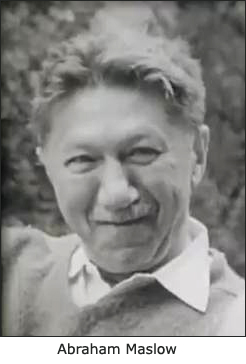 Yes, we are all born with what Maslow called "instinctoid
needs" or "innate needs" that drive us to grow,
develop, and do whatever is necessary to fulfill these needs.
Yes, we are all born with what Maslow called "instinctoid
needs" or "innate needs" that drive us to grow,
develop, and do whatever is necessary to fulfill these needs.
BUT, he was also one of the first people to suggest
that individuals are unique beings.
In a time
dominated by the
stimulus-response theory, this idea was quite shocking.
Behaviorists such as
John B. Watson denied individuality but believed that you
could create any behavior you wanted by using the right
punishments and rewards.
Still others argued that
everything about personality was biological and had nothing to
do with social environment or personal experience.
So,
Maslow's more humanistic approach was met with both interest
and criticism.
Basic Needs Must Be Met
- But Each Person Does It
Differently
Basically, he said that although the needs are innate - or
inherited - the behaviors we use to meet these needs are
learned and can vary widely from person to person.
Therefore, personality is determined by both nature
and nurture:
The needs (nature) drive us, but
the behaviors we have learned, based on our social environment
and childhood experiences (nurture), will influence how we
work to satisfy the needs.
In this way, Abraham Maslow
stressed the importance of parenting and childhood
experiences, believing that they could either help or hinder
later development.
However, he also said that adults
do not have to be victims to unhappy or unhealthy childhoods.
We Can all Become the Best We Can Be
& We all Have the
Resources to Overcome Trauma
Since our innate nature is basically good and optimistic, we
have the potential to overcome the negative emotions and
experiences and make a conscious decision to change our
future.
Abraham Maslow's theories resulted in the
emergence of a whole new field of psychology and the rise of
new approaches to therapy based on the idea that people have
all the resources they need to grow and overcome (This is the
core essence of his self actualization theory).
The
therapist's job is simply to help facilitate the discovery
process.
Maslow Paved the Road for Carl Roger's Client-Centred Therapy
In fact, Maslow's work laid the foundation for one of the most
famous and popular types of therapy known as "client-centered
therapy" developed by
Carl Rogers.
Although Maslow's theories were most
popular during the 1960s and 70s, many of his ideas are still
prevalent in the workplace, education system, and parenting
courses.
The Outline of This Article on Abraham Maslow
So as you can read, Abraham Maslow changed the face of
psychology and his theories have impacted everything from
parenting to therapy techniques.
Undeniably, Maslow
continues to have great influence in many fields of study and
research, and his ideas can still be seen in many areas of
society.
Here in this article you'll get to read:
- A biography on Maslow
- Maslow's positive approach to
psychology and research
- Maslow's famous hierarchy of needs
- Maslow's ideas on the need to know and to understand
- Common
academic criticism of Maslow
- Short intro to his books
The Abraham Maslow Biography
Abraham Maslow was
born April 1, 1908 in Brooklyn, New York.
He was the
oldest of seven children, born to Jewish parents who
immigrated to the U.S. from Russia.
Challenging Childhood - Poor and Lonely
The family was very poor
with little hope of improving their station in life.
Abraham Maslow described his childhood as lonely and unhappy,
saying that he grew up isolated and without friends.
He was not close to his parents and claimed that his father
ignored him while his mother was "absolutely selfish and
narcissistic" (Schultz, 1986, p. 298).
Starts out with Law but His Heart Belongs to Psychology
His father
pushed him very hard to achieve in life, and at his parent's
wishes, he began to study law at the City College of New York.
However, it wasn't very long before he realized that
this was not his calling, and after 3 semesters he transferred
to Cornell University's psychology program.
The Combination of Personal Love and Professional Direction Makes Him 'Whole'
When he was 20, Maslow married his wife,
Bertha, and shortly afterwards the couple moved so he could
attend the University of Wisconsin.
Although his
parents did not approve of the union, Maslow claimed that his
marriage gave him a sense of belonging and love that he had
never experienced before.
He said that getting married
and attending the University of Wisconsin provided him with
much needed direction and purpose, something he felt lacking
in his childhood.
For the first time he had some
stability in his life and felt true joy.
From Fascination with Behaviorism to Passion for a Theory of Human Motivation
While in Wisconsin, Abraham Maslow began
working with
Harry Harlow who is known for his
experiments with baby monkeys and his study of attachment
behavior.
This experience, together with his
interest in research done by Edward Lee Thorndike at Columbia
University, began to change young Maslow's philosophies.
His interest in psychology had begun with a fascination of
Watson's theories, prompting him to begin training in
Behaviorist methods.
However, his own research and
observations at the University of Wisconsin created a
curiosity in social behavior, the development of self-esteem
and belonging, and the study of human motivation.
Maslow completed his B.A. in 1930, his M.A. in 1931, and his Ph.D in 1934.
A year after graduation, he moved back
to New York to continue his research with Thorndike at
Columbia University.
In 1937, he accepted a teaching
position at Brooklyn College where he stayed for the next
fourteen years. It was here that much of his theory was
developed.
From 1951-1969, Maslow served as Chairman of
the Psychology Department at Brandeis University, and was
president of the American Psychological Association for 1968.
Abraham Maslow died on June 8, 1970 at the age of 62.
In this five minute video below you can see a relaxed Abraham Maslow speaking about the inherent wisdom and goodness of human beings that traditional psychology at the time did not account for
Maslow's Theoretical Contributions
Positive Approach to Psychology and Research
At a time when the
focus of psychology was on the emotionally disturbed, mentally
ill, or unhealthy aspects of humanity, Malsow chose to look at
the more optimistic side of mental health.
It may
sound like a trivial angle - but this was really new at the
time.
Maslow's Logical Conclusion:
You Need to Study
the 'Healthy' to Help People Become 'Healthy'
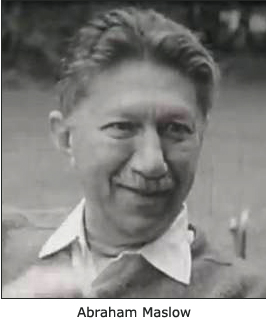 Abraham
Maslow argued that when you study only the ill, you ignore all
the positive factors.
Abraham
Maslow argued that when you study only the ill, you ignore all
the positive factors.
Remember, he believed that
everyone is innately kind, good, and virtuous, and that we all
have an inherited drive to achieve our full potential.
This was true of all individuals - even the unhealthy. The
reason they don't grow and progress is because something is
hindering the process.
So, the best way to understand
human nature and personality development is to study the
healthy and find out what they are doing so that the unhealthy
can be guided along the same path (this 'going-for-the-healthy-and-positive'
approach is very similar to the idea inherent in
Martin Seligman's
positive psychology).
Maslow believed
that studying the best representatives - those who have
achieved self-actualization - was the only way to determine
the true potential of humanity.
Observing the
emotionally disturbed will tell you what is wrong,
but studying mentally healthy individuals will tell you what
is right.
And, it is only by knowing what is
right that you can fix a wrong.
In fact Maslow went as
far as saying,
- "The study of crippled, stunted,
immature, and unhealthy specimens can yield only a cripple
psychology" (Abraham Maslow quote, 1979, p.180).
Maslow Was not Interested in Past 'Why's' but in Future 'How's'
According to Maslow, there isn't even a point in knowing "why"
a person is ill unless you can offer a solution.
Knowing that you broke your leg because you fell out of a tree
is not really helpful unless you have available resources to
repair your leg and regain healthy function.
Maslow's
Idea Is that We Can all Self Actualize
... if We Decide
that We
Want to
Abraham Maslow stated that we all have those resources
within us, and whether we are healthy or unhealthy is not the
main point of focus.
The key is to recognize the
abilities within ourselves and tap into them so that we can
overcome negative circumstances or experiences and begin
moving toward self-actualization.
So, unlike
Freud,
Alfred Adler, or
John B. Watson, Maslow's theory
was not created by observing the emotionally disturbed, but
was developed from his study of the healthiest personalities
he could find - both living and dead.
As well as
finding healthy individuals in the society around him, he also
studied detailed biographies of historical figures such as
Thomas Jefferson and Abraham Lincoln.
From this, he
came up with the idea that focusing on the positive is much
more important than the negative and finding the answer is
more vital than dwelling on the symptoms.
And, the
greatest answer lies in finding out what the healthy are doing
to stay healthy.
Maslow's Hierarchy of Needs and Self Actualization Theory
- Our Needs Propel Us to Grow and Actualize
When it came to personality development,
Maslow proposed a hierarchy of needs and suggested that these
needs act as motivators to make people work toward growth and
progress.
Now remember, Maslow believed that everyone
is born with basic innate needs which motivate and direct
behavior; but while the needs are biological, the behavior is
learned.
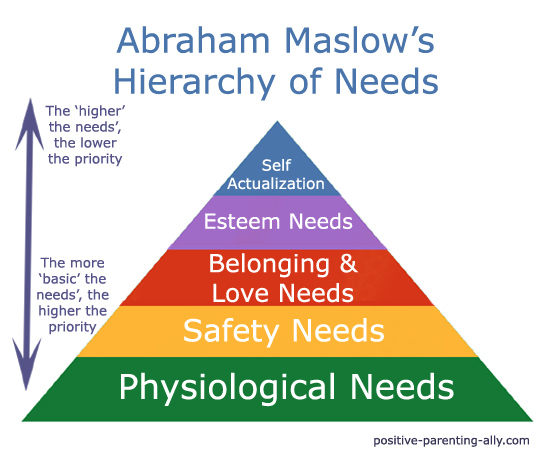
The Logic of Maslow's Hierarchy of Needs:
- You 'Work' Your Way Upwards: The Most Basic Needs for
Survival Must Be Met First
From his observations, he
determined that the needs at the bottom of the hierarchy must
be at least partially satisfied before the next level will
emerge.
For example, a person living in poverty is
highly concerned about their physiological needs and gives
very little thought to a sense of belonging and self-esteem.
How can someone "better" themselves if they barely
have enough food to survive the day?
In other words,
while all the needs are within us, they will not all take
prominence at the same time.
The needs of only one level can
dominate at any point in time; although, it is possible for
the next need to begin to emerge when the ones before are only
partially satisfied.
However, Maslow does stress that
"partial satisfaction" means that the need is no longer
dominant.
For a person living in famine conditions,
the need for food and clothing is the only thing on their
mind.
But, someone living in the "slums" of a major
city may have concerns about having enough food and clothing;
however, they are not "starving".
Therefore, while
physiological needs are still an issue, they are satisfied
enough to possibly allow needs from the next level to begin
appearing.
The Direction of the Pyramid of Needs
- The
Goal Is to Move up the Pyramid but Setbacks May Occur
While the goal is to move up the hierarchy, Maslow believed
that you can move down as well.
For example, a
teenager who was raised in an affluent home will have both
their physiological and safety needs met and will probably be
focusing on love and belonging.
However, if a parent
dies or loses their job, the family can suddenly come under
stress. A loss of income can result in the loss of the home
which leads to a reversal in the needs hierarchy. Now, the
focus is once again on the safety needs, and quite possibly
the physiological needs as well.
The adolescent's
sense of security has been threatened and the lower level
needs take precedence over the higher level ones.
The
Strengths of the Need Levels
- The More Basic the Need, the
Stronger It Is
According to Abraham Maslow, the lower
the need, the higher its strength and priority.
Needs
at the top of the hierarchy are much weaker. He also stated
that higher needs appear later in development.
By his
theory, physiological and safety needs appear in infancy,
belonging and esteem needs emerge in adolescence, and
self-actualization does not take precedence until middle
adulthood.
Because the lower needs are absolutely
essential to survival, Maslow called these Deficiency needs or
D-needs.
The higher levels are called Growth or
Being
needs because they are not vitally necessary - although they
do produce happiness, contentment, better health, and stronger
relationships.
Maslow believed that almost all mental
illness or abnormal behavior arises from a need deficiency -
whether connected to survival or not.
His focus was on
changing behavior by satisfying the need.
How Maslow's Own 'Deficiency' Background Potentially Gave to Rise to the Pyramid Idea
No theorist - Maslow included - is free
from personal biases and social and cultural background.
Everything we have experienced color our view of the world and
our goals in it.
Thus Duane Schultz, in his book
Theories of Personality writes the following about
Maslow and his quest:
- "It is perhaps understandable
that Maslow, who rose out of a childhood marked by poverty and
hardship to a position of respect and prominence, would
believe in the tendency of the self to grow, develop, and
actualize. It is also understandable that, coming from a
background where food and shelter were important everyday
concerns, Maslow would develop a system in which those needs
assume a position of primacy until they are satisfied. Since
as a child he felt lonely and isolated, it is not surprising
that needs for belonging, love, and esteem are important in
his theory, once physiological and safety needs are satisfied."
(p. 298).
The Levels of Maslow Pyramid of Needs Explained
Here is an explanation of Maslow's the different levels in Maslow's theory of needs:
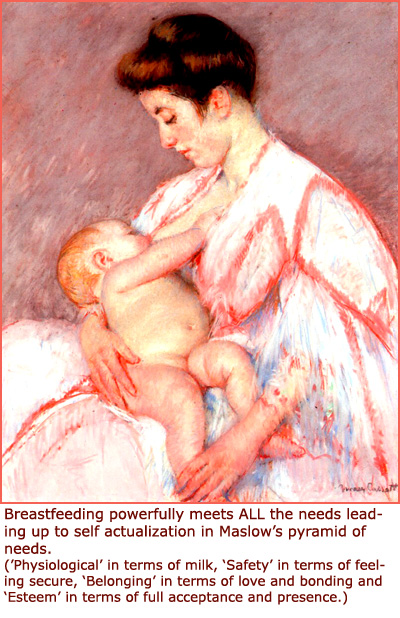 Physiological Needs
Physiological Needs
These are
the most basic needs for food, air, water, sleep, excretion.
At this level, these needs are the most powerful and
the person is driven by the desire to satisfy them.
In
a normal situation, physiological needs are most prominent in
infancy when the baby's main concerns are food and comfort.
Safety Needs
These needs include such things as
stability, security, protection, structure and order, and
freedom from anxiety.
Again, these needs are of most
importance in infants and young children, although they also
appear in unhealthy or insecure adults.
Maslow noted
that children respond well to structure and routine and he
believed that well balanced parenting will facilitate a sense
of security.
Complete permissiveness and lack of
boundaries create insecurity and anxiety in children, but
total control can also cause fear and a threat to stability.
He suggested that children be given the freedom they
can handle within limits, and that a parent should guide
children to self-direction and help them explore their
abilities within boundaries.
Abraham Maslow also
pointed out that most normal adults have satisfied this need;
however, they still prefer some predictability and structure.
Belonging and Love Needs
These needs include a need
for friendship, family, intimacy, and a sense of belonging.
These needs can be met through close relationships,
lovers, or marriage; but, Maslow also said that an individual
must find his place within a group or society.
But
where do they fit in the family, in their workplace, in their
social groups, or in society at large?
Maslow had a
concern that with the changes he was noticing in modern
society, these needs would become increasingly difficult to
satisfy. Few people stay in the neighborhood in which they are
raised, families are moving regularly for jobs, and social
contacts are constantly changing.
Maslow feared that
if people did not find new ways to satisfy the need for love
and belonging, society could face serious problems.
In
his opinion, failure to satisfy the love need (the need to
love and be loved) is one of the greatest causes of problems
within modern culture.
Some people argue that Maslow's
concerns were somewhat unmerited since he was unaware of the
future technological advancements that would aid in
communication and help people maintain relationships even from
a distance.
Esteem Needs
These include both the
need for self-respect (self-worth, confidence, achievement)
and the respect received from others (status, recognition,
success).
So basically, there are two kinds of esteem
needs: self-esteem and esteem given by others.
When
these needs are satisfied, a person will feel confident,
competent, valuable, and will be productive in relationships
and life in general.
If esteem needs are not met, an
individual will feel inferior, discouraged, and lack
confidence in both his decisions and abilities.
Maslow
also stressed the importance of esteem being "earned". For
example, someone will bow before a prince simply because he is
a prince - not because of anything he said, did, or
accomplished.
He distinguishes this type of esteem
from someone who is respected for something such as
establishing a charity, earning a Ph.D, or even being a good
parent.
Self-Actualization
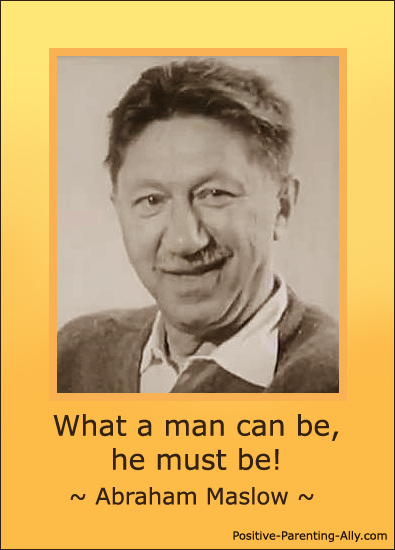 This is the highest
level on Maslow's hierarchy of needs and can only be gained
once all preceding needs have been adequately met.
This is the highest
level on Maslow's hierarchy of needs and can only be gained
once all preceding needs have been adequately met.
Basically, it is the realization or achievement of all your
potentialities and capabilities.
- "What a man can be, he must be." Abraham Maslow quote
Maslow states that
even if all the other needs are satisfied, a person will not
be happy if he is not working to become all that he can be, or
using all his skills and abilities.
Maslow said,
- "A musician must make music, an artist must paint, a poet must write, if he is to be ultimately at peace with himself" (Abraham Maslow quote, 1970, p.46).
Since everyone is
unique, self-actualization will be different for each person
depending on their potentialities.
Again, Maslow
stresses the importance of childhood since someone who does
not feel safe, secure, and loved will not pursue
self-actualization.
Excessive control or
permissiveness by parents will also inhibit growth and prevent
movement toward self-actualization.
Failure to Self-Actualize
The main question often raised with
Maslow's theory is: if the need for self-actualization is
innate then why isn't everyone self-actualized?
Abraham Maslow,
suggests that many people fail to become self-actualized
because:
- Higher needs are less powerful; therefore,
self-actualization is the weakest of all needs.
There may be things suppressing the need, the individual may be consciously ignoring the need, or the emotional environment may not be supportive to pursing self-actualization.
For example, if a girl wants to play hockey but she is raised in an environment that thinks hockey is only a boy's sport where girls don't belong, then she will deny her potential because she believes it is wrong. - It takes a lot of work to achieve
self-actualization. It means discipline, self-control,
overcoming challenges, and sometimes breaking free of
prejudices and societal norms.
Sometimes it is easier to "play safe" rather than "rock the boat". - The Jonah Complex: Maslow believed that many people fail to achieve
self-actualization because they do not have confidence in
their abilities. Fear and low self esteem overrule courage and
they begin to doubt themselves and their potential to achieve
greatness.
- They have not satisfied the need to know
and to understand. This is actually a mini-hierarchy that
overlaps Maslow's larger one, and is very important to
self-actualization.
The Need to Know and to Understand
Although it is not clear why Maslow did not include these needs in the original hierarchy, he does claim that they are also innate and that they do drive and motivate for satisfaction.
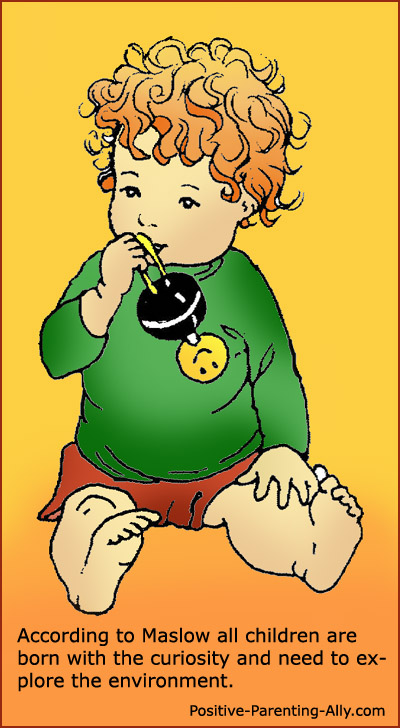 We Are all Born with These Needs and They
Naturally Emerge in Late Infancy
We Are all Born with These Needs and They
Naturally Emerge in Late Infancy
According to Maslow,
the needs to know and understand emerge in late infancy or
early childhood.
At this stage, a child becomes very
curious about his environment. He will want to touch
everything, put objects in his mouth, and will be fascinated
with shaking a rattle or squeezing a squeaky toy.
As a
child grows and develops, his curiosity will drive him to
explore and investigate his surroundings.
Abraham Maslow
observed that this curiosity is not taught but emerges
naturally, although he was concerned about parents and
teachers inhibiting this natural curiosity, particularly those
who support behaviorism.
Older children and adults will
express this need by analyzing, experimenting, searching for
explanations, weighing options, or even trying new things just
to see what will happen.
Like any other need on
Maslow's hierarchy, a failure to satisfy the desire for
knowledge and understanding can affect development and
negatively impact personality.
Knowing Goes Before Understanding
And, the need to know is stronger than
the need to understand, so the first need must be at least
partially met before the second one will emerge.
For
example, a child will "know" that if he shakes a rattle it
will make a noise. At first, he does not need to understand
why it makes a noise, he just knows that it does. As
he gets older, he will begin to search for an explanation and
will either investigate on his own or begin to ask questions.
Maslow explains that the two hierarchies are intertwined
in that a person must know and understand in order to find
purpose and function properly so they can then gain love,
esteem, and self-actualization.
Therefore,
self-actualization is not possible unless all needs are
satisfied, including the needs to know and understand.
A parent who inhibits a child's curiosity or does not allow
him to investigate and interact with his environment will
discourage the development that leads to self-actualization.
On the other hand, a parent who provides their child
with a lot of opportunities to interact and explore will
facilitate the satisfaction of needs and help him reach his
full potential.
Academic Criticism of Maslow's Theories
Maslow's theories were very popular in the 1960s and 70s,
but then he seemed to fall out of favor with his academic
colleagues for a while.
While people like
Jean
Piaget agreed whole-heartedly with Maslow's ideas, many
people expressed their criticism.
First Point of
Criticism of Maslow:
- The Data Is Elitist and Does not Embrace all
Societal Groups
Among academics and researchers, the
biggest criticism was the fact that his theory was based
mostly on case studies, small sample groups from the upper
class, and historical figures no longer alive.
Maslow
stated that the needs were innate and universal, but many
argued that he could not prove this since he did not account
for cultural, economic, or even gender differences.
Second Point of Criticism of Maslow:
- Who Is Maslow to Decide Who Is
Self Actualized?
There was also a question about his study
of self-actualized people.
The sample group was not
only small but contained people that Maslow himself declared
self-actualized.
But, if self-actualization is
reaching your full potentialities, who decides when this has
happened?
If someone had certain characteristics,
Maslow determined that they were self-actualized.
But
were they really?
And, was someone who didn't fit
Maslow's criteria definitely not self-actualized?
Many felt that self-actualization is, in fact, untestable
and that Maslow's definition was unscientific.
Self-actualization is quite subjective, and if someone feels
that they are content and satisfied, is it anyone else's right
to declare that they are unfulfilled?
From a
psychological point of view, many critics object to the idea
that self-actualization is only achieved by a few and only in
middle life.
Why can't a teenager be self-actualized?
According to Piaget, self-actualization is not a level (as
Maslow implies) but a process that one is always working
towards.
In other words, healthy people are
self-actualizing rather than being
self-actualized.
It is a verb not an
adjective.
People have a built-in desire to continue
improving and progressing. Therefore, why can't a 17 year old
reach all the potentialities that he is capable of at that
point in time and be self-actualized - at least for the
moment?
Third Point of Criticism of Maslow:
- People May Have
Basic Unfulfilled Needs and Still Seek to Meet Higher Needs
Still others do not agree that one need must be at least
partially satisfied before another emerges. There are a lot of
people living in great poverty that still dream of a better
life, beyond simply worrying about their next meal.
In
fact, many great authors, painters, and revolutionaries have
done their greatest work while dealing with poverty,
depression, social crisis, or war.
Despite criticism,
Maslow's theories seem to have a lot of merit and are making
resurgence with the current popularity of
positive psychology and
positive parenting approaches.
Books by Abraham Maslow
Abraham Maslow's writings were geared
primarily to his colleagues and fellow psychologists.
Therefore, they are not really easy reading for the average
person and require a lot a time and patience to get through.
However, for those with the inclination, his books are
full of interesting and valuable information that can
positively impact your parenting approach.
His two most
recognized books are Motivation and Personality and
Toward a Psychology of Being.
These writings
cover all the basic tenets of Maslow's theories including the
hierarchy of needs, characteristics of the enlightened or
self-actualized person, metamotivation, peak experiences, and
his definition of "psychology of science".
Although
these books are difficult to work through, they do contain
case studies and examples, and will help you understand
Maslow's theories from his own point of view.
Your Positive Parenting Ally,
Birgitte

Want to stay in touch and get the latest news?
Sign up
for my free newsletter
Parent Coaching
- For Inner Peace, Clarity and a Deeper Connection to Your Child
 Being a parent can feel like a double-edged sword. Life with kids may feel like the greatest gift you have ever received, while at the same being hugely challenging, often leaving you confused, stressed and overwhelmed.
Being a parent can feel like a double-edged sword. Life with kids may feel like the greatest gift you have ever received, while at the same being hugely challenging, often leaving you confused, stressed and overwhelmed.
When we feel like this, we've lost touch with ourselves. We can't hear our own inner voice, and it's difficult to know what is 'right' for us and how to act.
I offer in-depth parent coaching to help you regain your balance and get back in touch with yourself. From a place of inner peace and clarity, your will find your own answers which will help you reconnect with your child from a place of unconditional love and acceptance.
Read more about my parent coaching here.
Where Would You Like to Go Next?
Famous Parenting Experts Overview
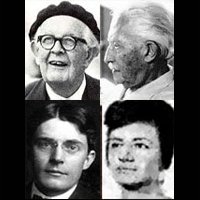 Famous Parenting Experts and Their Parenting Styles Theories: Humanism vs. Behaviorism. |
Parenting Experts Related to HUMANISTIC Parenting Styles (Founders, Refiners, Supporters or 'Coiners')
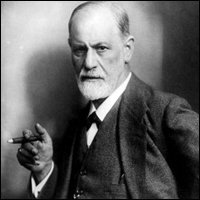 Sigmund Freud the Controversial Pioneer of Psychology: The Famous Psychosexual Stages of Child Development. |
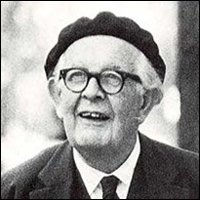 Jean Piaget Biography, Theories and Books: The Earliest Torch Bearer of Humanism. |
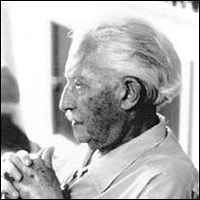 Erik Erikson Biography and Theories: The 8 Developmental Stages, Identity Crisis and Ego Identity. |
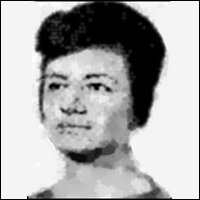 Diana Baumrind Spot-on: Biography, 3 Parenting Styles and Criticism (Spanking). |
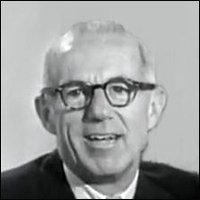 Dr. Benjamin Spock Biography, Theories and Books: The Controversial Forefather of Intuitive Parenting. |
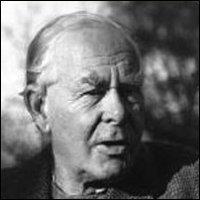 A Biography of John Bowlby: The Father of Attachment Theory. |
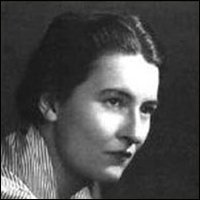 An Intriguing Mary Ainsworth Biography: The Refiner of Attachment Theory. |
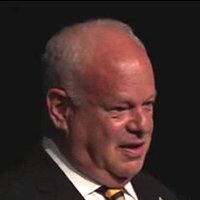 Martin Seligman: The Critic of Traditional Psychology and Father of Positive Psychology. |
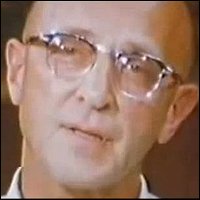 Carl Rogers Biography, Theories and Books: The Founder of Humanistic Psychology. |
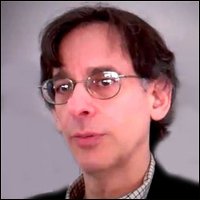 Alfie Kohn Biography, Theories and Books: The Father of Unconditional Parenting. |
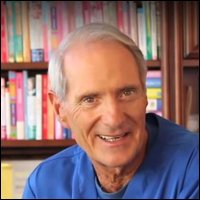 Deep Insights into the Essence of Dr Sears' Attachment Parenting - Along with a Fascinating Historical View on the Slow Rising Consciousness of Attachment Parenting. |
Parenting Experts Related to BEHAVIORIST Parenting Styles (Founders, Refiners, Supporters or 'Coiners')
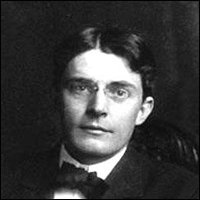 John B Watson Biography, Theories and Books: The Father of Behaviorism. |
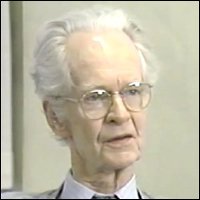 B. F. Skinner Biography, Theories and Books: Father of Radical Behavorism. |
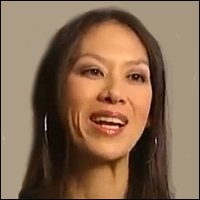 Amy Chua Biography and Theories: Tiger Mother's 9 Parenting Principles. |
Back to the top of this page about Abraham Maslow Biography: The Father of Humanistic Psychology & Self Actualization Theory
Go to the Positive Parenting Ally Homepage







